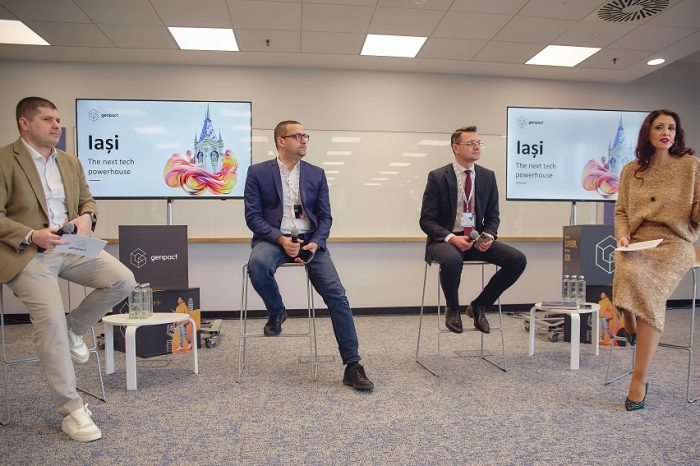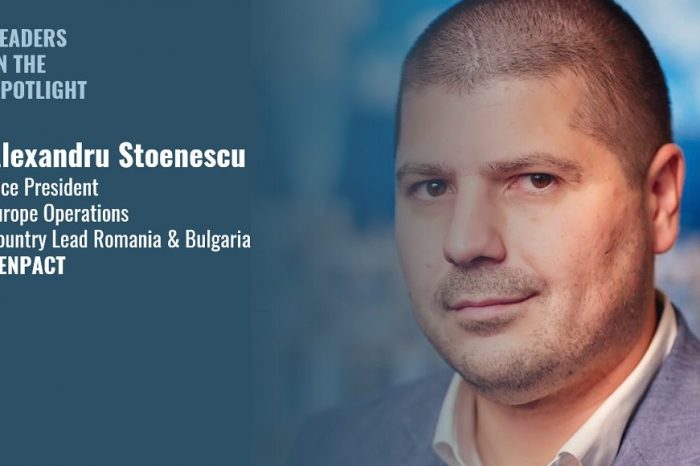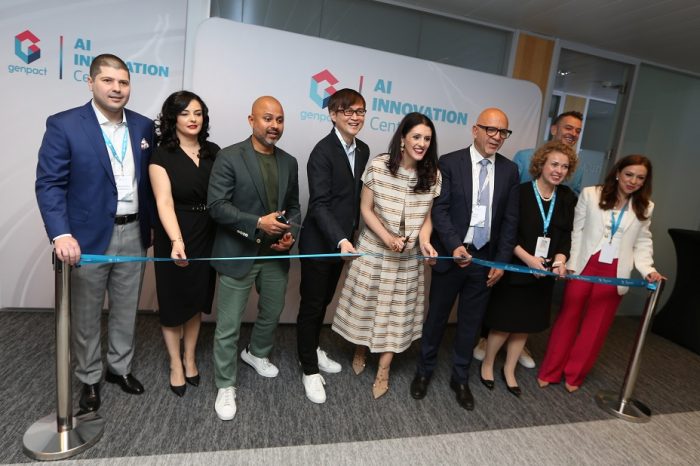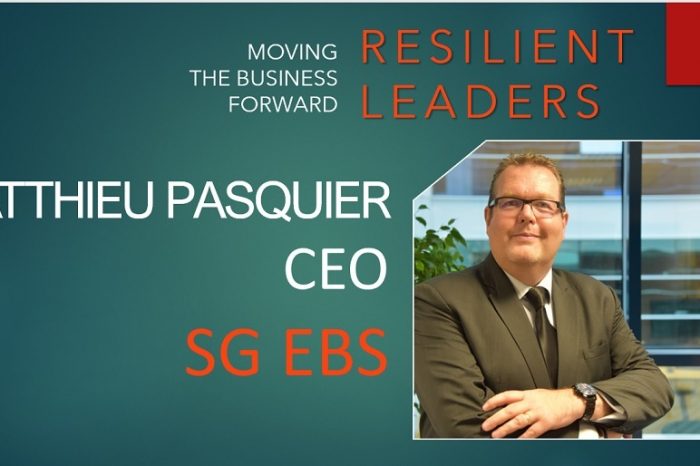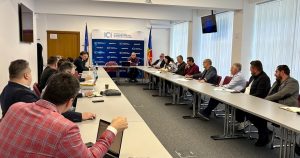Crina Ilie, Genpact Europe: Today, the meteoric speed of change of any skill relevance stands as the main challenge

Learning and development (L&D) programs and initiatives have been headlines of corporate agendas in 2020 and continue to do so in 2021 as well, as businesses adapt to the ways and needs to learn of their employees and business partners. Also, studies of this year showed that improving L&D is a critical initiative to 86% of companies.
In this context, we recently talked in a comprehensive interview with Crina Ilie, People Function Leader & Genpact Europe L&D.
Our world is changing dramatically. Communities, people, and businesses are looking for new ways to build resilience as they step into an uncertain future
At Genpact, we’re playing our part to close the gap between those with resources and those in need. We’re helping three core groups – communities, people, and businesses – groups we rely on every day and in turn rely on us – to adapt and rise.
The skills shortage is one of the biggest challenges all types of companies face today. Reskilling/upskilling programs that are directly relevant to employees’ current jobs and career aspirations are one of the foundational cornerstones of success along with Resilience. The skills dearth challenge is so large that broad-based reskilling needs to become a company strategy. The conversation needs to change from educating every individual to reskilling groups of people who work together to increase their collective intelligence. So, we expect that other players in this space, and other continuing education operations outside our industry, will embrace our model, as it creates an environment that continuously sources knowledge, crystallizes and propagates learning on topics employees want and need to gain proficiency in.
To achieve our clients’ transformation goals, our employees need to be “bilinguals” – meaning that they have in-depth understanding of their industry or function, and awareness of how to harness the potential of digital technologies at scale and leverage soft skills to optimize collaboration with others.
Our employees need “T-shaped” interdisciplinary skills – meaning they have depth in one domain and an understanding of others – because our solutions for clients are increasingly combinations of different disciplines. Data alone doesn’t lead directly to insights. In fact, for enterprise companies, the value of data is decreasing while the value of human judgement is going up. In respect to the future, Empathy & Automation are not mutually exclusive as machines predict and analyze, but humans are needed for their judgement, empathy, and creative problem-solving.
In the past 2-3 years, we have reimagined our L&D agenda, going towards a future-ready learning strategy. We want to change the conversation from “educating every individual through L&D” to reskilling groups of people who are doing work together – and increase their collective, not individual, intelligence.
Such a collective-intelligence-based reskilling machinery creates an operating model that can adapt to a continuously changing world. We can then cultivate and sustain the skills necessary for employees to thrive in the age of AI, filling in the talent gap and driving real-world innovation at scale. The purpose of our L&D management is to build an adaptive workforce and guide our employees through this change within the learning culture. Thus, our people will be able to shift from functional roles to more fluid, purpose-driven career paths and our front line managers will be enabled to see the possible gaps and own their team’s development. All of these leading to a sustainable learning behaviour that would help us prepare for the future of work.
Before Genome, our training was classroom-heavy, delivered through external experts. Content was externally sourced and conceptually heavy. With Genome, we’re enabling all our employees to tap into the collective intelligence of great minds within Genpact and beyond, self-select bite-sized, issue-specific chunks of learning that are directly relevant to their current jobs and future goals, and immediately implement the learned skills into their workflow.
No other firm in the industry uses collective intelligence so extensively. Our Genome approach is about scale and speed. It allows us to continuously scale our learning offerings, quickly add fresh contextualized content – rather than generic content from external providers – that are directly relevant to our clients’ businesses and our solutions and contain our learning and development costs. Our BITS – Because, Immerse, Transform, Solidify – model is revolutionary. It allows our employees to assess their competency levels in areas of relevance and interest to them, lets them learn at their own pace, connects them with gurus, and reinforces what they’ve learned because they actually apply it to their own work.
Genpact’s radically different learning framework, Genome, enables all of our 95,000+ employees to learn skills that are highly relevant to their current roles and future aspirations. To date, we’ve identified 300 granular skills in 60 domains with 5,000 learning assets and 4,200 hours of learning content.
Courses are offered across four major areas: digital and analytical; professional skills; industry; and service lines. With the help of Genome we will continue to focus on our efforts to reskill our employees through our targeted, BUILD programs where we are providing opportunities to our internal talents to find their next role, even outside of their current domain.
Professional resilience: In January, the World Economic Forum estimated that 1 billion people would need reskilling by 2030 to future-proof them from technological change. And then storm COVID-19 hit. As professionals face one of the most difficult labor markets in history, it’s time for everyone to evolve their skills and thrive in a workforce of man and machine. We have opened key areas of our own learning platform to help all individuals adapt and rise. The platform covers a range of business-critical roles – from finance and risk to supply chain and HR – and helps you build the digital, collaboration, and leadership skills that will unlock the next chapter in your career. You now have free access to our collective intelligence and tailored training recommendations. Dive in to shape the future of you. https://adaptandrise.edcast.com/log_in?auto_sso=true
Today, the meteoric speed of change of any skill relevance stands as the main challenge
The half-life of skills is three to five years at best. Technological disruption has sparked an all-out war for talent, and the required talent simply can’t be hired at scale. Mandatory skills training doesn’t work, because courses are often irrelevant to a learner’s current role or future career aspirations. Mass skills training doesn’t work, because every employee’s role has different needs, and every individual has a specific, preexisting proficiency level. We can no longer approach education with a one-size-fits-all model and it should be the executives who need to become reskilling educators. Corporate executives need to rethink employment strategies to adapt to evolving job functions and better support employees through the retraining process.
Another challenge, the current pandemic situation has brought, is adapting to the new reality. The instilled remotely work environment, has influenced how people think about learning and challenges them to upskill and reskill as to become future relevant. To this reason, self-select bite-sized, issue-specific chunks of learning provided by Genome have proved to be directly relevant to employees current jobs and and to reportedly impact their learning path towards a more convenient, accessible and sustainable „learn from anywhere” behaviour. Therefore, we are able to say that a great achievement we saw during last months through our unique learning framework, Genome, is not only regarding the adoption rate within our employees, but also regarding the frequency of the active learners that has increased over the last months. Currently, ~75% of all our people managing Intelligent Operations are learning through Genome at least once a month.



